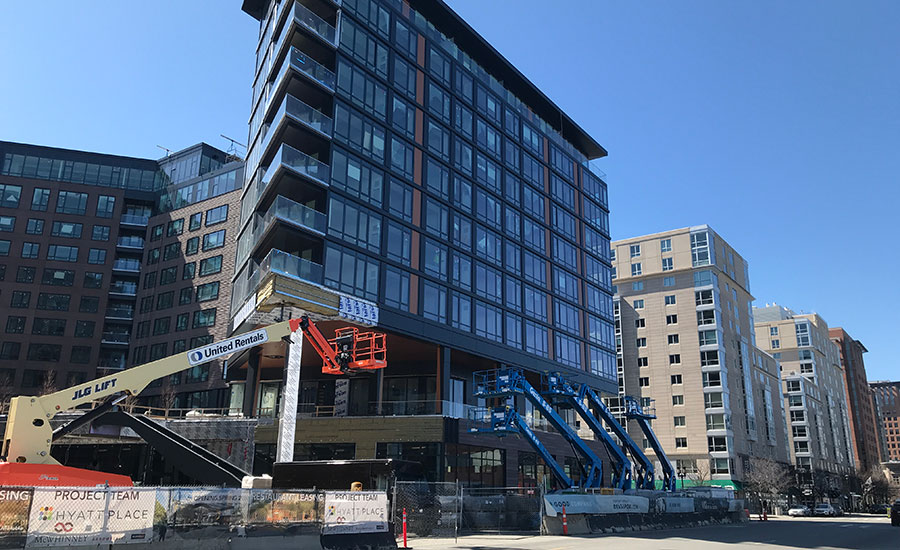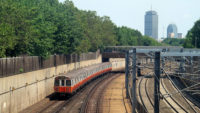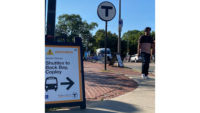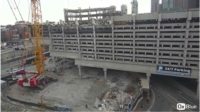A major waterfront construction site in Boston that managed to avoid the city’s shutdown on building activity amid the coronavirus is now closing up shop. The apparent shutdown puts an end to what had become a glaring leak in Boston Mayor Marty Walsh’s city-wide quarantine.
A steady trickle of workers could be found early Thursday afternoon, March 26, leaving the construction site for the Ora Seaport, a 304-unit apartment building and an adjacent hotel in Boston’s Seaport. Workers at the site told an ENR reporter they were told to pack it in.
For ENR’s latest coverage of the impacts of the COVID-19 pandemic, click here
Walsh on March 16 banned all but emergency construction activity in the city, forcing dozens of contractors and thousands of workers at 97 different construction sites to pack up their tools and go home.
On the evening of March 25, Walsh, a Democrat, extended the ban “until further notice." But still, work continued unabated on the new waterfront apartment project. While in the heart of Boston, the Ora Seaport is taking shape on land controlled by the Massachusetts Port Authority, a state entity.
That, however, had all changed by Thursday afternoon, following reports in the local media on the striking exception to the city’s construction ban and inquiries from ENR to the port authority and Suffolk, the lead contractor.
“It sucks,” said one carpenter who asked not to be named as he left the Ora worksite Thursday afternoon. “A lot of us have families we have to take care of. I think it should be up to the individual whether they want to take the risk.”
Contacted about the sudden stop of activity on the worksite, a Suffolk spokesman declined to comment immediately, saying that announcement would be forthcoming.
In contrast to Boston’s mayor, Mass. Gov. Charlie Baker (R) has classified construction work as “essential,” allowing projects to move forward on land controlled by the state.
On March 25, an ENR reporter observed the Ora construction site and spotted violations of social-distancing guidelines established to stop the spread of the deadly coronavirus.
In one instance there were two cherry pickers, each with two workers apiece in their buckets, with just one worker wearing a mask. There were also clusters of workers standing close to each other and talking, in violation of the six-foot guidelines.
In a statement, Suffolk did not respond to the specific observations, but said the company has taken several precautions at its worksite to help prevent the spread of the coronavirus.
In addition to social distancing rules and keeping in-person meetings and large gatherings to a minimum, the company is also doing extensive cleaning and “surveying all individuals on jobsites daily to ensure they are symptom free,” said Jeff Gouveia, president and general manager, Suffolk Northeast, in a press statement.
Boston’s decision to shut down construction comes amid an epic building boom in the city, with more than 21 million sq ft of in-progress residential, office and commercial space, according to the Boston Planning and Development Agency.
"The safety and health of construction workers and all residents of Boston is my first priority, and I am not willing to put that at risk as the virus spreads throughout our communities," said Mayor Walsh.
Meanwhile, other cities and towns around Boston are making their own calls on whether to shut down construction.
Neighboring Brookline has taken a more hands-off approach, allowing work to go ahead on an $128-million addition to Brookline High School.
A supervisor for a steel-erecting subcontractor at the construction job, for which Skanska is the lead contractor, says it “feels weird” to have two communities side by side with two such different approaches.






Post a comment to this article
Report Abusive Comment